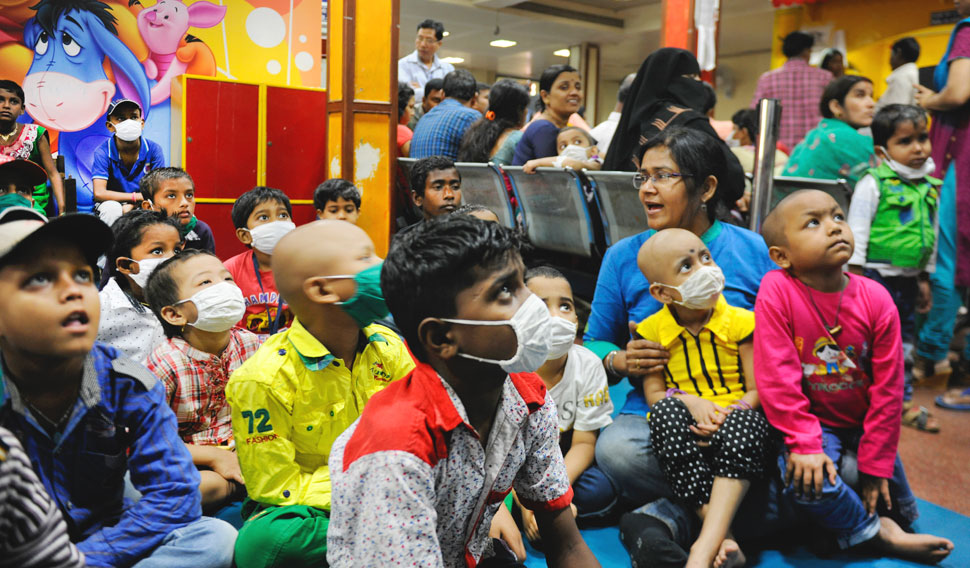
Class apart
A school for children undergoing cancer treatment is making a difference
Swagata Yadavar | Photos Amey Mansabdar

A class organised by CanKids, at Tata Memorial Hospital in Mumbai, in session. For the past three years, CanKids, a support group for children with cancer and their families, has been running Canshala in the two rooms of Jagannath Bhatankar Municipal School at Parel in a public private partnership with the Brihanmumbai Municipal Corporation.

At 10:30am every day, a bus collects the students from the various dharamshalas—which serve as a temporary shelter for cancer patients and their families—across the city and brings them to the school.

The children are served a nutritious breakfast before class, which lasts for two hours. Then lunch is served, and after that it is activity session till 3:30pm. After the activity session, students who need to go for their chemotherapy sessions are taken to the hospital. The rest go back to the dharamshalas.

Since its launch, the school has had more than 420 students; currently, it has 20 students. The siblings of such children are also admitted so that their education doesn't suffer while their parents are attending on them.

As in a regular school, the students get uniforms, books and school bags and they take routine exams. Since the BMC is involved, the students get a valid school leaving certificate which makes them eligible to continue their education in the next grade.

Some children get too disheartened or lose interest in studies after the treatment. So, CanKids came up with the idea of setting up a school in the hospital itself. “There are studies which show that if children are stimulated during the treatment, it leads to a better outcome,” says Dr. Shripad Banavali, professor and head of department of medical and paediatric oncology at Tata Memorial Hospital.

Hospitals are taking special care in designing the outpatient department for paediatric oncology in a more lively and engaging manner. At the paediatric oncology department of Tata Memorial Hospital, for instance, the young patients have an option of indulging in activities like colouring, crafts and watching films to brush up their skills and keep themselves busy.

For the past seven months, teachers from Mindsprings, an educational consultancy, have been visiting the OPD for two hours—from 10:30am to 12:30pm—and keeping the children busy with stories, songs, crafts and films. “The idea is to not burden them with academics but to stimulate their minds so that they continue their education after the treatment,” says Priya Iyer, project manager, Mindsprings.